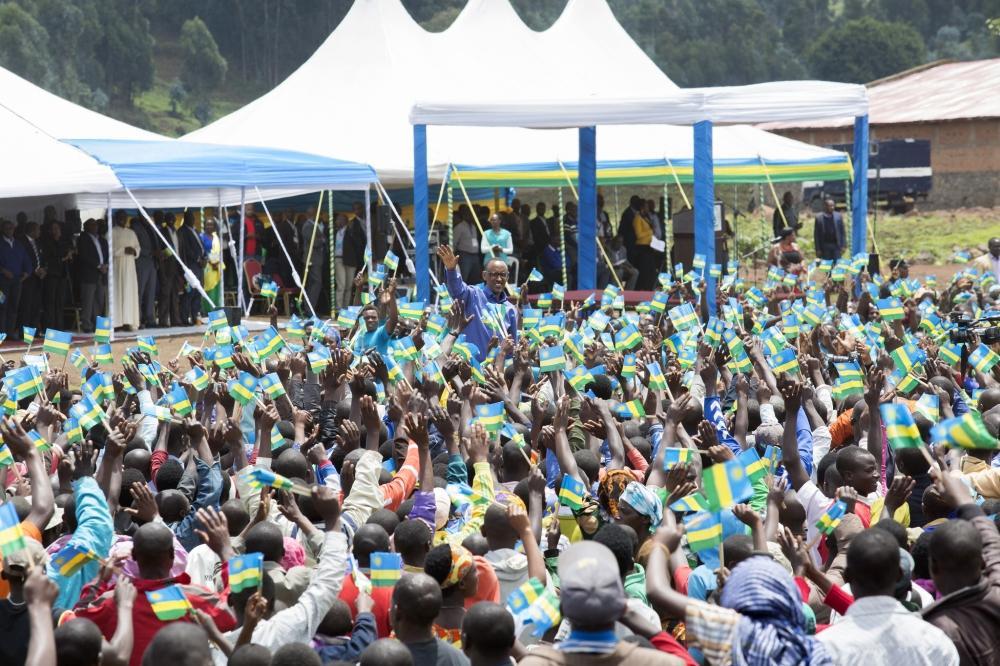Doris Uwicyeza Picard
Africa-Press – Rwanda. The past decade has been a time of seismic shifts. Countries are still facing the aftershocks of Covid-19, inequality is widening, climate change is escalating, and unstable geopolitics are intensifying armed conflicts in many parts of the world.
These global challenges have not spared Rwanda and have forced us to confront our place in the world. How do we build prosperity and maintain our Agaciro, with limited resources, in a tough neighbourhood and within a global system where rules are unfairly applied, imposed even?
The answer for us has always been clear: governance matters. It is the conviction that institutions, discipline and foresight, not geography or natural resources, that determine a nation’s future.
Our history is evidence that governance can make or break a nation. Weak governance nearly destroyed us; it is the collective post-genocide effort to strengthen our governance that brought our country from the brink. Good governance has since rebuilt trust, restored dignity and allowed us to turn scarcity into opportunity. As President Paul Kagame reminds us, dignity cannot be given, it must be earned through hard work.
This positioning is why international benchmarks such as the Chandler Good Government Index (CGGI) resonate so strongly. CGGI does not measure a country’s size, wealth or natural resources. It measures governments’ capabilities; it measures what a country can do. The 2025 edition of CGGI, tells a story of both achievement and unfinished business for Rwanda.
CGGI 2025 ranks Rwanda as 59th out of 120 countries in good governance. This may not seem like much at first glance, but it puts us in second place in Africa (behind Mauritius). Rwanda is ranked ahead of countries with much bigger economies. This is notable considering the challenging environment in which Rwanda operates. It shows that governance capability is not a natural byproduct of size and wealth; it is built and worked for.
The index highlights Rwanda’s strengths: we rank 19th in ‘Leadership and Foresight’, including 4th in long-term vision and 6th in adaptability. This reflects the discipline of setting clear national strategies, the foresight to invest in the future, and the agility to adjust course when crises like COVID-19 or regional instability hit.
Rwanda also scores strongly in regulatory environment: under ‘Attractive Marketplace’, we are 7th globally for stable business regulations and 25th in property rights. Investors and citizens alike know that rules here are predictable, and that government decisions are not arbitrary.
The index also points to where we must improve: On ‘Helping People Rise’ (education, health, jobs, and equality), Rwanda is ranked 91st, with particularly low scores in employment and income distribution. This shows that our governance systems are strong, but we need to work harder to ensure the benefits reach more citizens.
These findings matter even more acutely in today’s harsh world with volatile food and fuel prices, rising borrowing costs and climate shocks that threaten our agriculture. The lesson from the CGGI is clear: countries that succeed are those that plan with diligence, coordinate effectively, and deliver consistently. For Rwanda, the priority now is to turn governance capability into broader opportunity: people need to feel the benefits of our strong capabilities in their daily lives.
Global indices are important, but we also hold up our own mirrors. Rwanda Governance Scorecard (RGS) provides a domestic check. The 2024 edition showed ‘Safety and Security’ at 93.8%, a reminder that peace and security are our strongest foundation. RGS also revealed a drop in the quality-of-service delivery, especially in internet connectivity at 67.3%. This needs correction because without reliable digital access, our vision for a knowledge-based economy cannot be realized.
The Citizen Report Card (CRC) provides another layer of truth: the view from the citizens themselves. In 2024, 76.5% of Rwandans expressed satisfaction with public services, with security again rated highest (91.3%), but agriculture services lowest (61.5%). These results tell us clearly where Rwandans expect better: in the sectors that affect their daily lives, from farm productivity to local service delivery.
Being second in Africa and first in low-income countries is not a trophy but a responsibility. It shows that strong governance can be built even in difficult circumstances. It also challenges us to ensure every citizen is not only a stakeholder, but also feels the benefits.
That is why Rwanda Governance Board will continue to keep our national mirror honest: the Rwanda Governance Scorecard will highlight where we lag, the Citizen Report Card will keep citizen voices front and centre, and the Chandler Good Government Index will remind us how we compare with the rest of the world.
Taken together, these three surveys point us to a simple but powerful agenda: Rwanda must protect the gains and push harder where gaps remain.
As President Kagame put it: “There are small countries but there are no small people, thinking big and acting big are choices available to all of us. Size is not destiny”.
That is Rwanda’s place in the world: a country proving that governance matters, that dignity is non-negotiable, and that resilience and foresight can deliver results even in the toughest global environment.
Source: The New Times
For More News And Analysis About Rwanda Follow Africa-Press






